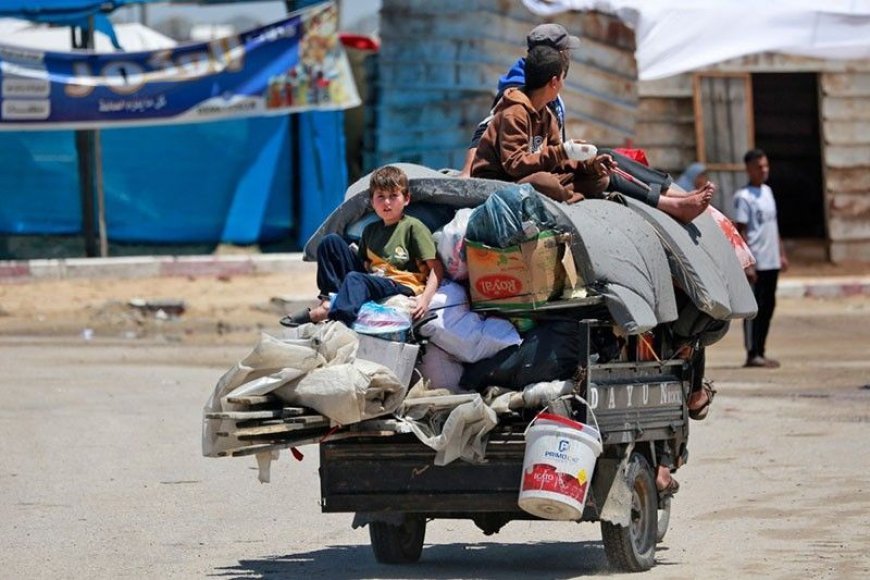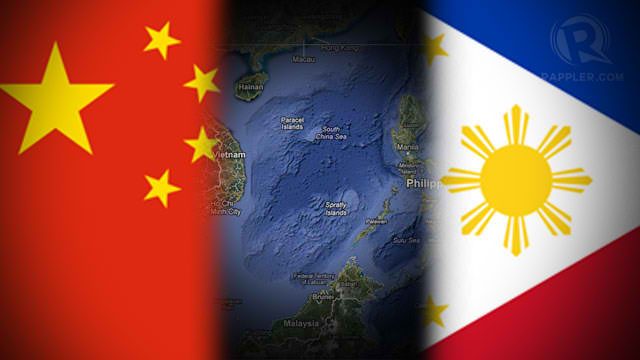Israel requests that Rafah be evacuated while Hamas accepts the idea for a Gaza truce
As Israel reiterated its order for Palestinians living in Rafah to leave the city in anticipation of an invasion that has been long-feared, Hamas announced on Monday that it accepts an offer for a truce in the seven-month-old conflict in Gaza

In a significant and long-awaited development, Israel has authorized the entry of 50 aid trucks into northern Gaza on October 17, 2024, following intense diplomatic pressure from the United States. This decision marks a critical step in addressing the escalating humanitarian crisis in Gaza, where civilians have been enduring severe shortages of food, water, and medical supplies due to the ongoing conflict between Israel and Hamas. The move comes after U.S. officials reportedly threatened to withhold military aid to Israel unless immediate steps were taken to facilitate humanitarian assistance to the besieged region. The aid trucks, laden with essential supplies such as food, medical equipment, and clean water, aim to provide urgent relief to thousands of civilians trapped in the conflict zones.
The conflict, which has raged for weeks, has resulted in devastating casualties on both sides, with countless civilians displaced, injured, or cut off from basic necessities. The humanitarian situation in Gaza has drawn widespread international concern, with reports of overcrowded hospitals, dwindling food supplies, and a lack of clean drinking water. The U.S. government, along with other global powers, has been actively urging Israel to allow greater access for humanitarian aid, emphasizing the need to prevent a full-blown humanitarian catastrophe. While Israel has agreed to this limited aid delivery, officials have expressed caution, citing ongoing security risks and the need to ensure that aid does not fall into the hands of Hamas or other militant groups.
The decision to allow aid trucks into northern Gaza has been met with cautious optimism by humanitarian organizations and the international community. Groups such as the United Nations and the Red Cross have welcomed the move but continue to stress the need for sustained and uninterrupted access to aid. They argue that a one-time delivery, while helpful, is insufficient to address the scale of the crisis. Many are calling for a longer-term ceasefire to ensure that aid can be delivered consistently and safely, without the constant threat of renewed hostilities. The temporary relief provided by the 50 trucks is seen as a step in the right direction, but far more is needed to meet the overwhelming needs of Gaza’s civilian population.
The U.S. diplomatic pressure that led to this decision underscores Washington’s significant influence in the region and its role as a key ally of Israel. By leveraging its military aid relationship, the U.S. has demonstrated its ability to shape Israeli policy, particularly in matters of humanitarian concern. However, this move also highlights the delicate balance that global powers must strike between supporting Israel’s security interests and addressing the urgent humanitarian needs of the Palestinian population. The aid delivery is seen as crucial not only for alleviating immediate suffering but also for maintaining regional stability and preventing further escalation of the conflict.
Despite this positive development, questions remain about the sustainability of the aid flow and whether it will be enough to address the deepening crisis. Humanitarian organizations have warned that without a comprehensive and long-term solution, the situation in Gaza could deteriorate further, leading to even greater loss of life and suffering. The ongoing conflict remains fraught with political and military challenges, with both sides deeply entrenched in their positions. While the entry of aid trucks provides a glimmer of hope for those in dire need, it is clear that much more must be done to achieve a lasting resolution to the conflict and ensure the well-being of all civilians affected by the violence.
As the world watches closely, the focus now shifts to whether this temporary relief will pave the way for broader diplomatic efforts to end the hostilities and create a more stable and secure environment for both Israelis and Palestinians. The international community continues to play a critical role in pushing for peace and humanitarian access, but the path forward remains uncertain. For now, the arrival of the 50 aid trucks offers a brief respite for those suffering in Gaza, but the need for sustained action and a lasting ceasefire has never been more urgent.
News Source: https://www.philstar.com/world/2024/05/07/2353268/hamas-accepts-gaza-truce-proposal-israel-urges-rafah-evacuation
What's Your Reaction?












/https://tf-cmsv2-smithsonianmag-media.s3.amazonaws.com/filer_public/54/66/546650fa-26a4-40fd-8d6d-5a7a04540f81/rosetta2.png)
:max_bytes(150000):strip_icc():focal(999x0:1001x2)/robert-prevost-050825-1-39395418ab494da5a3a700c9478e66c8.jpg)















































format(webp))
format(webp))


























